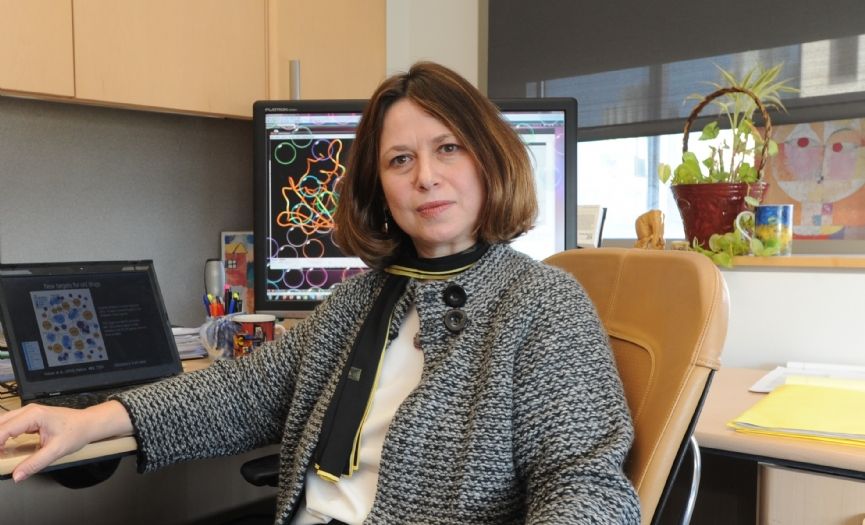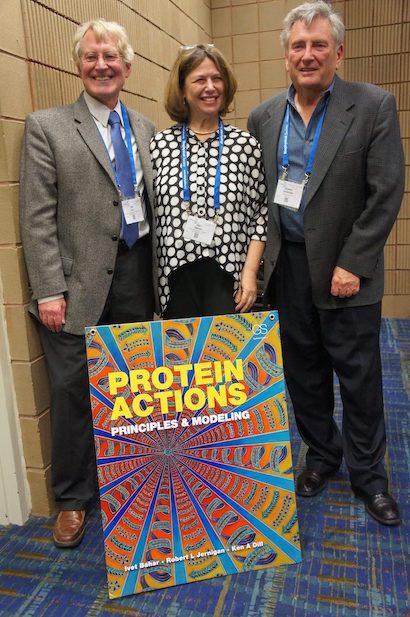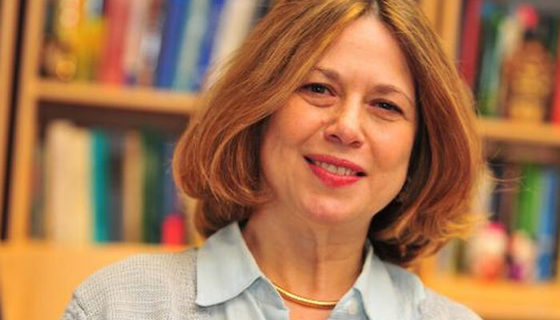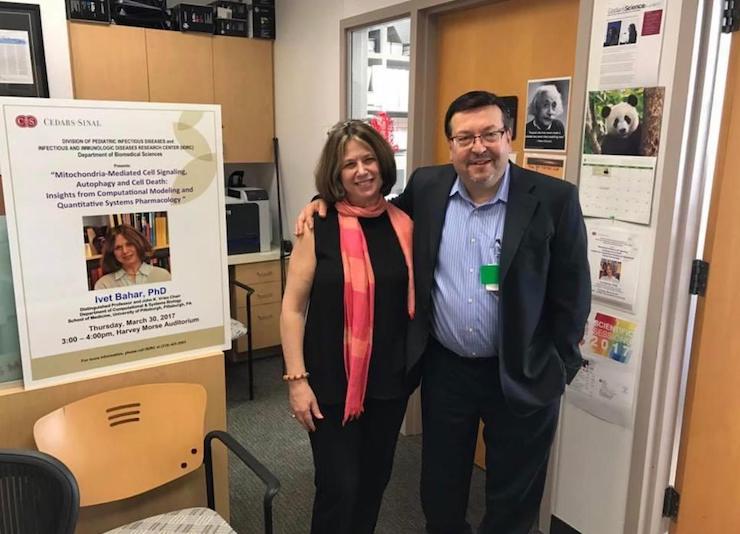
"I´m Optimistic; More Than One Drug will be Launched by the End of 2020"
Ivet Bahar, Ph.D., who explained what happens in our cells on a molecular level with the computer software she designed herself, thus regarded as one of the pioneers of bioinformatics, was elected member of the U.S. National Academy of Sciences. We discussed with Prof. Ivet Bahar who designs the future of science, her academic career full of success, and what she is doing to develop a treatment for COVID-19 in her ´Bahar Lab´ with her team she calls ´my academic grandchildren´.
Translation by Janet MITRANI
With a huge success you were elected as a member of the U.S. National Academy of Sciences. You even are the first Turkish female scientist who achieved this success. What off-the-books moves did Ivet Bahar, who studied Chemical Engineering at Boğaziçi University, to accomplish this?
Since I liked maths and physics so much in high school, I wanted to be a scientist. Because it is a basic science and with my husband -my friend at the time- Izzet Bahar's reasoning, at first I chose Chemistry at the university. In the first grade, computer lesson was not taught, so I transferred to Chemical Engineering. When I had graduated, what interested me the most was designing materials. I got my master's degree in polymers (materials made of long, repeating chains of molecules).
I got my doctorate degree on the same subject in ITU (Istanbul Technical University). However I got further away from synthetic polymers and got closer to the biologic ones in time. The most important molecules in our body DNA, proteins; they are all either a macromolecule or polymer.
When I completed my doctorate in less than 3 years in 1986, I went back to the Bosphorus University as a faculty member.
During the summer vacations between the years 1992 and 2001, I went to U.S. National Health Institute located in Maryland Bethesda with my children and did researches there. These were important for me in order to learn the researches in the U.S. closely.
I had become an associate professor in 1987 and professor in 1993, but I was studying biology non-stop, even though I hadn't taken one class of biology during university years. Persistently changing subjects until I found the field that interested me the most and using what I had learned as best as I could in the act; this should probably be the off-the-books move you were talking about.
"We started to learn when you use a drug, how it completely changes the system physiologically, with all its side effects."

Prof. Dr. Ivet Bahar & Selin Kandiyoti
I've read that the year 2000 was a turning point in your career.
Yes, with the Genome Project, the DNA sequence of the entire human genome was determined. Our computerized researches at the Bosphorus University, during my teaching years of 1986-2001, were of international nature. A second fact was that at the same time groundbreaking discoveries were being made.
When the proposal to start the 'Computational Biology and Bioinformatics Research Center', which later turned into a whole department, came from the University of Pittsburgh, I couldn't resist. Later in 2005, I started a joint doctorate program with Carnegie Mellon University.
In 2010, the department expanded even more and was named 'Department of Computational & Systems Biology' which I am heading now.

Prof. Bahar with Ken Dill (left) and Robert Jernigan (right), in the presentation of the lecture book they wrote for their students
What exactly is being done in this department?
We are performing the experiments scientists are doing in labs, on computerized simulations. The cells in the human body is like a factory. Proteins are the workers, DNA is the IT center that transmits the orders. We are analyzing how that process works via simulations.
What is the advantage of these simulations?
Laboratory experiments are more expensive and take more time. We are lowering the duration and cost; helping the hypotheses be displayed. Also we are interpreting the experiments on a molecular level.
It is said that people working on interdisciplinary fields such as informatics see the bigger picture. What do you see in the bigger picture?
As our department advanced, we saw that focusing on only one side of a problem in our simulations was incorrect.
We often design drugs. We started to learn when you use a drug, how it completely changes the system physiologically, with all its side effects. With this we understood that only computers are not enough and that we had to also prove it with experiments.

Prof. Ivet Bahar
Do you have a memory of a time when your eyes shined in your lab?
This is a matter of character, I am a person who gets excited quickly. So I have more than one memory like that.
Nowadays personalized treatment is very popular. We understand the explanation for this on a molecular level. Like why a certain peson's body produces a certain kind of enzyme, why some people's immune resistance for some illnesses are different. To understand these thrill me.
PERSONALIZED DRUG COCTAIL FOR COVID-19
Exactly, just as we were talking about personalized drug according to a person's genetics, and as your studies have accelerized in this direction, the whole world is after a universal vaccine and treatment. What are you doing concerning COVID?
Everyone is affected by COVID, but we see very different reactions from one individual to another. Unfortunately the virus is going through some mutations. As at the beginning children were not greatly affected by COVID, now we see that a mutated kind, as Dr. Moshe Arditi also stated, is causing a syndrome that shows similar syptoms with Kawasaki disease but is not Kawasaki. Different reactions are seen according to each child's genomic structure. Though it will be one drug to prevent COVID, still we will have to think of a drug coctail for each patient.
As to what we are doing; right now there are more than 100 possible drugs, some past clinical phases, being researched for COVID, plus many more drugs that have already been accredited by FDA for other illnesses. We are trying to determine which drug is more effective via simulations. Our findings are tested by experiments, then we put the additional information we get from the experiments back into our programs.
We know that to launch a vaccine or drug, due to pre and post clinical trials, takes 8-10 years. How much can your studies shorten this duration?
In fact it's even more than 10 years, developing a drug, clinical trials; you can even say 20 years. A shortcut I mean what our group is working on, is the ability to use the already existing drugs; direct it to a new target.
Body is a very complex system; you target a faulty part, another part reacts. We model how the whole system works. We are trying to find out the usability of the drugs against coronaviruses. This will take a short while, since the existing drugs have already been proven not to be toxic and that their side effects can be tolarated.
I am optimistic, therefore I'm saying before the end of 2020, a drug and/or a vaccine, even more than one drug will have been launched; at least I hope so...

Prof. Ivet Bahar & Prof. Moshe Arditi
Prof. Moshe Arditi created public awareness about the 'COVID-19 Associated Hyper Inflamatory Response Syndrome' seen in children. Could you tell us more about your cooperation with him?
Dr. Arditi wanted us to analyze in our simulations, whether COVID-19 has a molecular structure that causes the symptoms of the Toxic Shock Syndrome. If we find such a molecular component, they will seperate that molecular component and make experiment on a cellular basis, in their own lab.
We see news saying "She beat COVID at 107" or "A 5 year old child lost his/her life". Is it misfortune to get infected or does our genetics matter?
These have many factored origins. It is important how intense you encounter the virus. It's different when a small amount of virus enters your body for a short period; to be together with a sick person continuously and be exposed to the virus for a long time is totally a different story. To me this resemblances the relation between seed and soil; some seeds grow better in certain kind of soils, though in some soils they don't grow at all. Here, human body is the soil, the virus is the seed; how the virus grows changes from person to person. Therefore genetics is important. Your genetic structure changes due to prior illnesses or aging, this means the soil have changed.
One of your hobbies is swimming. Everyone is wondering; will we swim this summer?
We'll be able to swim. After July. I am optimistic again. If I'm not, it's very hard to do what I do. It's necessary to always dream and think positive. Of course regarding COVID you should prefer swimming in the sea.
Related Newsss ss









